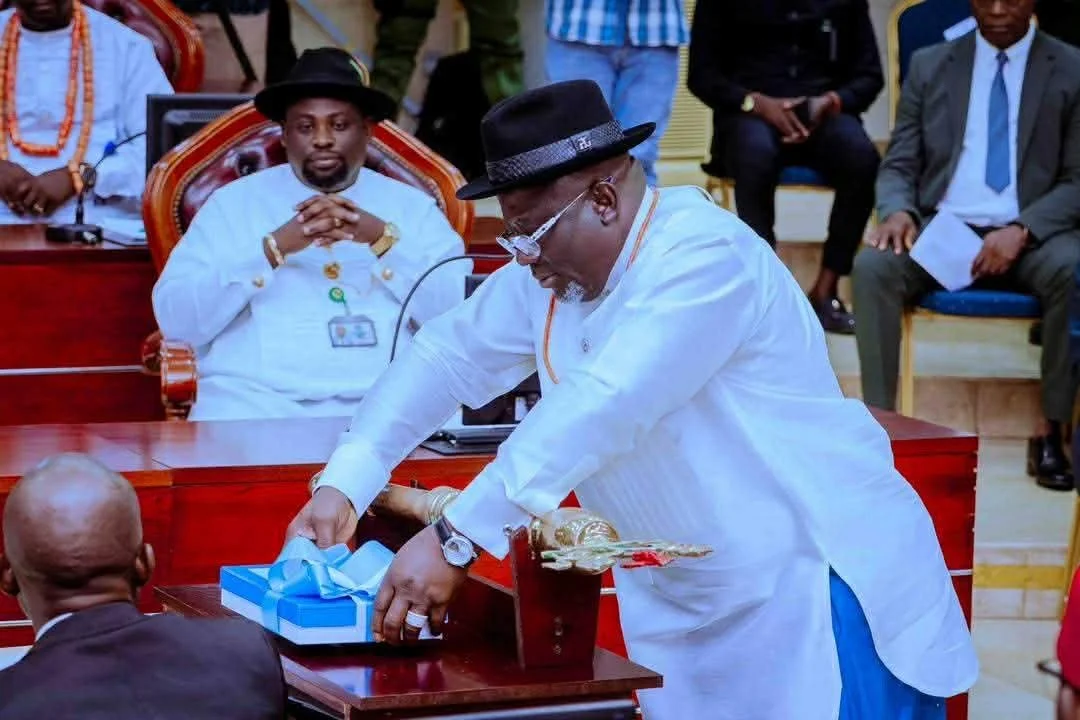Delta State Governor Proposes N1.66 Trillion Budget, Allocates 70% to Capital Expenditure
Delta Budget 2026: N1.66T Proposal & N450B Infrastructure Signal
Delta State Governor, Sheriff Oborevwori, has presented a monumental N1.664 trillion Appropriation Bill for the 2026 fiscal year to the State House of Assembly in Asaba. The proposal marks a significant 70 per cent increase over the state’s 2025 budget, signalling a robust commitment to infrastructure development and economic expansion.
Formally laying the budget before the lawmakers, Governor Oborevwori confirmed the aggressive fiscal strategy, noting that N1.165 trillion, or 70%, is designated for capital expenditure, while N499 billion (30%) is allocated to recurrent expenditure. This high capital-to-recurrent ratio is a strong indicator of the administration's focus on long-term asset creation and physical development.
Infrastructure as the Primary Economic Catalyst
The budget outlines substantial allocations designed to directly catalyze economic growth, with a primary focus on road networks crucial for real estate and investment viability.
Road Infrastructure: Governor Oborevwori disclosed a plan to spend N450 billion on road infrastructure across the state in 2026. The Governor emphasized the strategic role of these projects, stating: "A well-developed road infrastructure is a catalyst for economic growth... It facilitates easy movement of goods and services, reduces transportation costs, attracts investment, and improves access to markets." This allocation provides a clear roadmap for developers and investors monitoring land value appreciation in new or underserved corridors.
Economic Diversification: Highlighting agricultural diversification, the budget earmarks N10 billion for the Ministry of Agriculture and Natural Resources. This investment is intended to boost food security, promote self-reliance, and generate employment opportunities, thereby creating new economic hubs and potential demand centers for housing outside the established urban areas.
Funding Strategy and Fiscal Outlook
Revenue streams projected to fund the budget include statutory allocations, internally generated revenue (IGR), mineral derivation funds, and Value Added Tax (VAT). The reliance on mineral derivation underscores the linkage between the state's infrastructure delivery capacity and the stability of the oil sector.
Governor Oborevwori urged the legislature, led by Speaker Rt. Hon. Dennis Guwor, to accelerate the bill’s consideration, ensuring the momentum of the administration’s commitment to building “a prosperous, secure, and stronger Delta where no one is left behind.”
In his response, Speaker Guwor commended the progress recorded under the administration’s 'Renewed Hope for MORE Agenda' and assured the Governor of a thorough and timely review, affirming the Assembly's alignment with the executive's vision for state transformation.
Conclusion
Delta State’s N1.664 trillion proposal, defined by its 70 per cent capital expenditure allocation, signals a clear policy environment favorable to infrastructure-led growth. For the real estate and investment community, the N450 billion road allocation is the most significant takeaway, acting as a direct indicator of where the state intends to unlock new land value and investment opportunities in the coming fiscal year.

